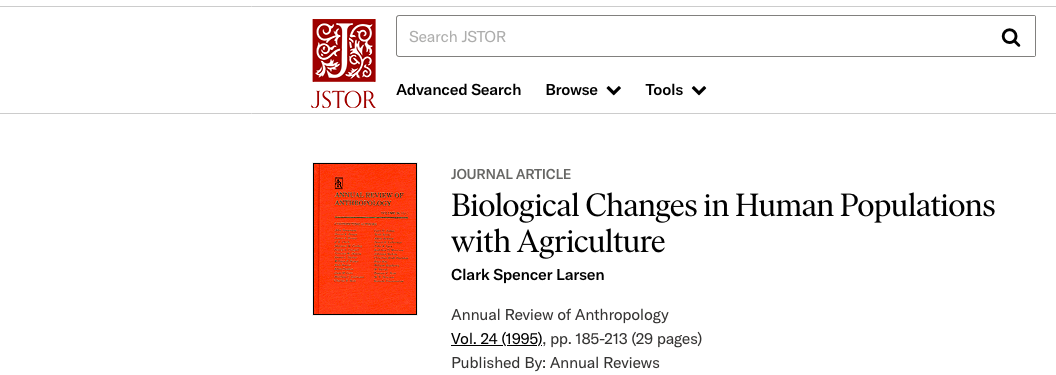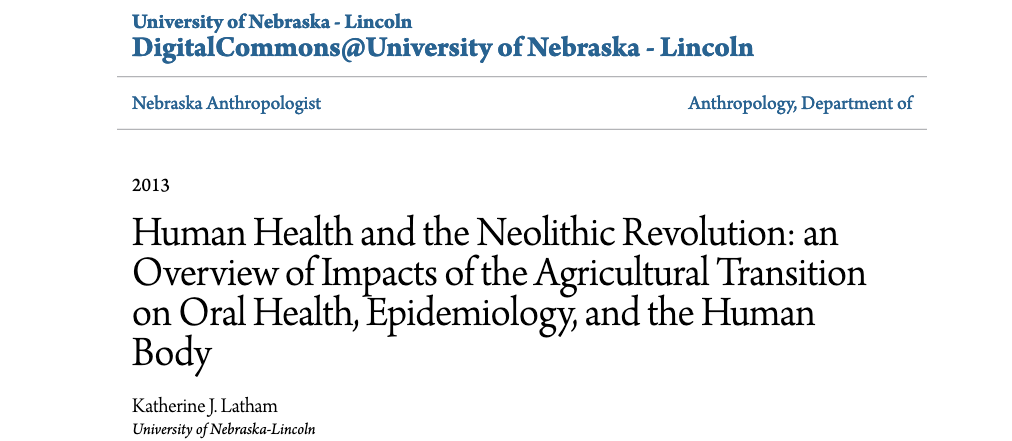Is there any negative effect of doing Keto long term?
Here’s an anecdotal experience from my 20 years of VLCHF.
Yes, limited and periodic carbs are beneficial, actually optimum. Long term strict keto can easily cause issues, like metabolic slowdown, lower libido, insulin resistance, etc. ALL OF WHICH I HAVE EXPERIENCED.
A short period of Maintenance eating will easily solve issues, as well as periodic and occasional days of Maintenance will prevent them.
Maintenance is defined as increased carb consumption, keeping well short of filling up liver glycogen, with periodic days of VLCHF and consequential glycogen depletion to insure no detrimental adaptions occur.
Please, no tales of “Carb Addictions” my response is.not intended to deal with personal psychological issues. People with those type of problems should consult a Mental Health Professiomal.
Today I had a bowl of Parsley Buttered New Potatoes.
That may be your definition, but it’s not mine. While eating small and incidental amounts of carbs may or may not be detrimental per individual variation, there is absolutely zero nutritional requirement to consume any carbs. Zero.
Michael and others haves provided answers that pretty much cover it, however, the simple answer is, when you are discussing this with any of those " many people ", ask them where humans, who didn’t have year round access, if at all, to all those fruits and vegetables, were getting the necessary nutrients for over 2 million years, while they were thriving and evolving, pre-agriculture?
99.9% Of the fruits and vegetables available today, did not exist 100 years ago in any recognizable form.
The ones that did exist were seasonal and/or unavailable to most people depending on where they were on the planet.
Obesity, type 2 diabetes and many other diseases that have gone epidemic in the last 50 years, were virtually non existent.
Of course there is a terrible negative effect of doing keto long term. Imagine eating strict keto for 120 years. Odds are super high that you will be DEAD within another couple of years!
Eating any diet long-term will create adaptations. We have to remember that we eat to feed ourselves in part from what we digest and absorb from the upper digestive tract and then the rest of what we eat goes on to feed our lower intestine where there is a whole microscopic biome.
If we eat a low variety diet, of any form, the person’s metabolism responds and adapts to that diet and the microbes in the gut biome that grow well on that food will predominate and have their effects on the human’s health.
There can be negative effects, usually in times of diet change as the body and biome readjust.
From these observations some low variety diets reduce dietary adaptability, and the gut or metabolic reactions to those diets can have long-term, cumulative, negative health effects.
The mass experiment that is going on with processed foods, industrial seed oils provides observations and data that a diet that sets up the wrong metabolic and hormonal and gut digestive responses in a majority of people can cause major health problems on a national population scale to the point of bankrupting a country.
Finding a way of eating that result in correct hormone responses with the ability to store and access energy efficiently, and that also feeds the body’s biomes, so that their synergy with the human organism is optimised, is a first step. Then, after healing those parts (often required), testing to see, if a variety of potential food sources can be tolerated follows. Negative effects often claimed of the low carbohydrate ketogenic diet is that the body becomes intolerant to carbohydrate rich foods. Health practitioners that use the low carbohydrate ketogenic diet as a therapy do observe that carbohydrate responses and tolerance improve after some healing. That does not mean that a metabolically damaged person can return to eating the diet that in part caused health issues. It demonstrates that for short periods when the highest nutrient dense and nutritionally bioavailable foods are not available, a person can eat alternate food sources without hurting themselves.
Meats provide the nutrients we need. Vitamin E is not found in meats, and not essential, in fact, people like me have genes that prefer not getting Vitamin E. Many plants hamper bioavailablity of nutrients as well.
That’s a concern I share.
But I think you can get the nutrients you need if you choose those 20g net carbs well. In my case, I think I’m doing ok-ish at 30g net carbs. It has made a difference in my worst keto symptoms: cramps.
Even if there was research about longterm keto, I think individuals still need to keep a close look at what it does for them. As with any diet.
Many people started keto because they suffer from obesity and/or diabetes. If that’s the case, then I believe the benefits outweigh the negatives anyway.
But don’t take anyone word for it. Test and be attentive.
Another consideration is what’s the alternative? Unfortunately, many who eat high carb choose them very poorly, consuming foods with lots of ingredients, many of them didn’t belong in food in the first place.
The meat they were eating isn’t the same as the meat we eat. Just like the veggies earlier veggies eaters consumed weren’t the same we consume today.
Their meat, while still roaming, or hunting, were consuming good quality air, good quality other meats, or grazing on good quality plants.
And there’s no consensus to say the early ancestors lived longer, better lives. I’ve even read that sapiens consuming more plants is what gave it an edge over Neanderthals. I’ve also read it was consuming plants that pushed our brain to the next level. Are they right? I have no idea. I’m just saying that if we’re science based, the truth is that… we don’t know.
There lots of evidence they were healthier and more robust. See the video below.
People who claim this, or that our ancestors ‘fattened up’ for the winter by eating plants during the summer, is based on the misconception that the fruits, vegetables, nuts and grains we have available today were around during the paleolithic. They were not. The plants available during the paleolithic were 90+% cellulose and lignin and contained so little nutrients that it was a total waste of time to eat them. Like eating grass.
Our brains grew only because our ancestors ate sufficiently nutrient dense fat and meat to provide the energy to do so. If they hadn’t come down from the trees onto the plains and started eating other animals, homo sapiens would be just another primate chattering in the tree tops of central Africa.
We actually know quite a lot. I’ve posted several topics linking studies/reports, etc of just how much.
In my humble opinion, the negative effects are fewer profits for big pharma.
I’m willing to read papers, but I’ll not watch videos. My time is limited.
I’ve done a search and the works I’ve found say our ancestors lived short lives. It makes a lot of sense, also if you imagine the hardship.
We’ve grown to a population of over 7 billion, life expectancy of over 70 in many countries. Above 80 in many, even. What made it possible?
Homo Erectus was roaming somewhere 1.5 million years ago. Homo Sapiens was possibly already around 350 K years ago. But when did we really develop? When did our numbers grow? When did we start writing? When did we actually put our brains to good use?
What were our grandparents eating and doing just fine? Only meat?
We’ve messed up ourselves with processed food. Even meats come with maltodextrose and other additives nowadays. Circumstantial evidence, for what it’s worth, points to this (processed foods) as the real problem.
Our ancestors’ average lifespan was short, because of the risk of infectious disease. Infant mortality used to be atrocious until around a century ago. Those that avoided that risk generally lived to ages that would still be considered respectable today. It wasn’t very long ago, in evolutionary terms, when an infected cut was a mortal danger, and to develop a fever was to be at death’s door.
In fact, I am old enough to remember when most of the diseases that are now preventable with a vaccine, or easily treated with an antibiotic, were routine risks of childhood and often carried with them permanent effects (one of my grandfathers was crippled by polio, and one of my grandmothers died early of heart complications resulting from contracting rheumatic fever in childhood). And those diseases were bad enough in childhood; they could be fatal if you didn’t contract them until adulthood. A friend of my mother’s made the mistake of nursing her unvaccinated grandchildren when they came down with whooping cough. She mistakenly believed she had had the disease in childhood—but she had not, and had never been vaccinated for it—so she contracted it herself, and very nearly died. It was touch and go there, for a while, though she eventually did recover.
Health and longevity
In general, Paleolithic people were healthier than Neolithic man. Life expectancy was 35.4 years for men and 30.0 years for women in the late Paleolithic era (30000 to 9000 BC). In the early neolithic era (7000 to 5000 BC) this fell to 33.6 and 29.8 years, and in the late Neolithic era (5000 to 3000 BC) fell even further to 33.1 and 29.2 years respectively. The adoption of grains in the Neolithic era coincided with a shortening of stature, thinner bones and crooked, cavity-ridden teeth. Another interesting physiological change was a decline in pelvic inlet depth, making childbirth more difficult in the Neolithic era compared with the Paleolithic era.[1]
Diseases like tooth cavities, malaria, tuberculosis and typhoid fever are first known to have occurred in the Neolithic era.
Abstract
… Contrary to earlier models, the adoption of agriculture involved an overall decline in oral and general health. This decline is indicated by elevated prevalence of various skeletal and dental pathological conditions and alterations in skeletal and dental growth patterns in prehistoric farmers compared with foragers. In addition, changes in food composition and preparation technology contributed to craniofacial and dental alterations, and activity levels and mobility decline resulted in a general decrease in skeletal robusticity. These findings indicate that the shift from food collection to food production occasioned significant and widespread biological changes in human populations during the last 10,000 years.
Haven’t read it. But my initial comment is simply this. Archeological evidence suggests our ancestors discovered how to capture/use fire about 1.8 million years ago. Maybe even how to start it. However, there is no evidence for the common and habitual use of fire for cooking prior to about 3-400 k years ago. Our primate ancestors came down from the trees some time prior to 4 million years ago and brain size was already increasing by 3.5 million years ago along with decreasing gut size. So I think the definitive cause was the increase in eating fat and meat. There is abundant evidence our ancestors were hunting and/or scavaging for at least a million years before the ‘quest for fire’. Nutrient density is more important than processing. And there’s evidence that cooking, depending on exactly how it’s done, can be detrimental to many nutrients.
Well, our life expectancy now is much superior. Dental cavities and all.
Nice references. Thank you!



